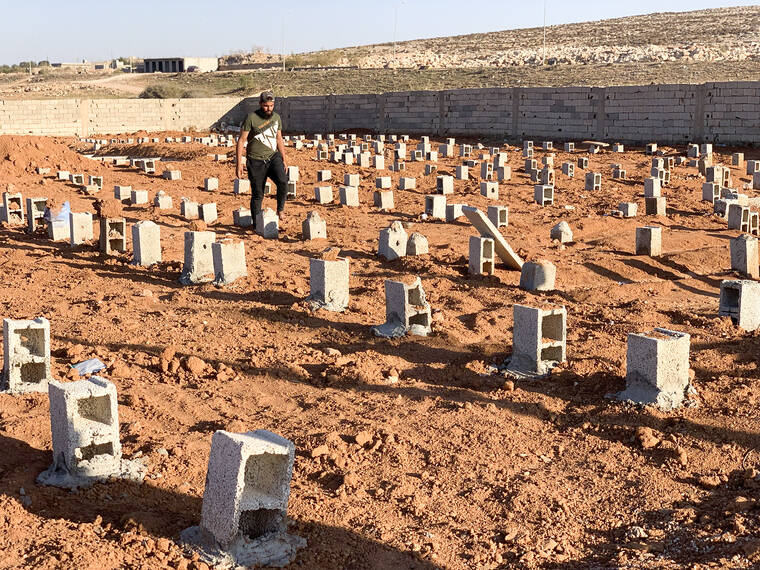Searchers look for more than 10,000 missing in flooded Libyan city where death toll eclipsed 11,000
DERNA, Libya — Libyan authorities limited access to the flooded city of Derna on Friday to make it easier for searchers to dig through the mud and hollowed-out buildings for the more than 10,000 people still missing and presumed dead following a disaster that has already claimed more than 11,000 lives.
The staggering death toll could grow further due to the spread of waterborne diseases and shifting of explosive ordnance that was swept up when two dams collapsed early Monday and sent a wall of water gushing through the city, officials warned.
ADVERTISING
The disaster has brought some rare unity to oil-rich Libya, which after years of war and civil strife is divided between rival governments in the country’s east and west that are backed by various militia forces and international patrons. But the opposing governments have struggled to respond to the crisis, and recovery efforts have been hampered by confusion, difficulty getting aid to the hardest-hit areas, and the destruction of Derna’s infrastructure, including several bridges.
Aid groups called on authorities to facilitate their access to the city so they can distribute badly needed food, clean water and medical supplies to survivors. Four days into the crisis, the lack of central oversight was apparent, with people receiving supplies and resources in some parts of Derna but being left to fend for themselves in others.
Manoelle Carton, the medical coordinator for Doctors Without Borders in Libya, described waiting in line for hours to get into the city and, once inside, finding volunteers from around the country who had flocked to Derna getting in the way of humanitarian workers at times.
“Everybody wants to help. But it is becoming chaotic,” she said. “There is an enormous need for coordination.”
Teams have buried bodies in mass graves outside the city and in nearby towns, Eastern Libya’s health minister, Othman Abduljaleel, said.
But officials worried that thousands more have yet to be found.
Bodies “are littering the streets, washing back up on shore and buried under collapsed buildings and debris,” said Bilal Sablouh, regional forensics manager for Africa at the International Committee of the Red Cross.
“In just two hours, one of my colleagues counted over 200 bodies on the beach near Derna,” he said.
Divers are also searching the waters off the Mediterranean coastal city.
Carton said later Friday that most of the dead bodies had been cleared from the streets in the areas of the city the Doctors Without Borders team visited, but there were other grim signs, including that one of the three medical centers they went to was out of service.


